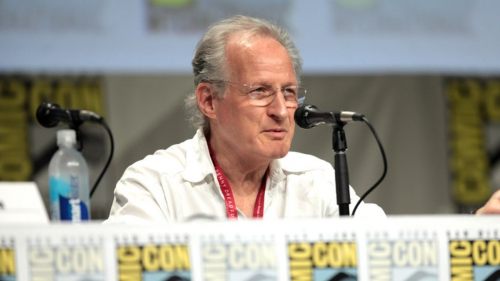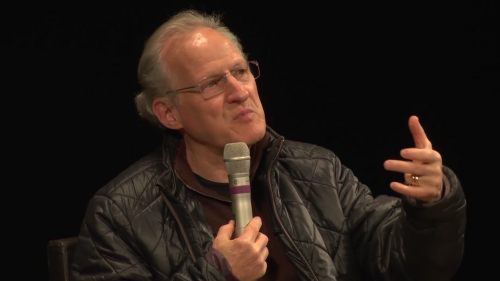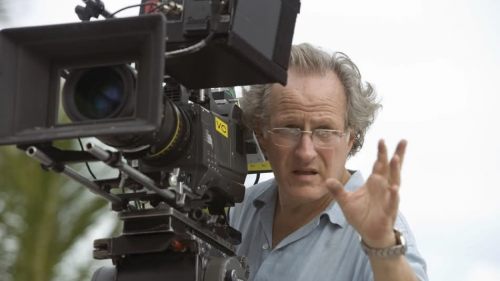BLACKHAT DIRECTOR’S CUT Review: The Curious Case of the Niche DC
An impersonal attack kicks off the Director’s Cut of Blackhat, just as it did the original theatrical version. A lone hacker in a cramped room, cigarettes overflowing the ashtray and a keyboard balanced on his person, sends commands crashing soy futures on the Chicago Mercantile Exchange trading floor. It’s an alphanumeric Molotov cocktail tossed by a coward, announcing his arrival on the international computer crimes scene and alerting Chinese authorities to a potential economic crisis that they need to put a pin in before it gets any worse. Writer/director Michael Mann is telegraphing the detached nature of these deeds via the very first scene of this redux – transposing a sequence that didn’t occur until fifteen minutes into the theatrical version’s runtime and thus strengthening the themes that dominate the rest of the picture. These men behind flickering screens are ghosts who need to have flesh wrapped around their bones before they can be confronted and taken down for good.
Ostensibly a repurposing of ideas Mann previously explored with his Thomas Harris/Hannibal Lecter adaptation, Manhunter, Blackhat was released in January 2015 to indifference and wrongheaded scorn by critics and moviegoers alike. It was an imperfect beast, for sure, full of melodramatic chutzpah and revolving around a somewhat silly central plot about rogue master blackhat hacker Nicholas Hathaway (Chris Hemsworth, whose goofy macho accent can’t be edited out) chasing down the mastermind behind the aforementioned soy bomb, plus a string of attacks that grow more and more deadly (shifting his destruction from digital to tangible). Yet it was also graced with the ever-shifting mise-en-scène the auteur had become known for since Collateral, his playfulness with DV not quite as limber as in Miami Vice (which stands as this writer’s favorite film of the aughts) but still thrilling in a real hair-up-your ass experimental sense. That these compositions are coming from an artist deep into his twilight years is remarkable, Mann’s devotion to changing the face of American action films ever-present and alive. To wit, your hyperbolic disdain was misplaced.
Universal reportedly urged Mann to push the cosmic Chinese reactor sequence that originally opened the picture up in the narrative during post production, resulting in not only a more traditional establishment of stakes for a studio production, but also the odd, out of sync dubbing during the introduction of Chinese cyber-intel official Chen Dawai (Leehom Wang) as he negotiates a response plan with his superiors. This was the major technical sticking point for many of the film’s fervent critics and, to be fair, they weren’t wrong. Rumored to be the result of the ever-controlling Mann’s failing hearing, and his inability to let his sound team do their jobs (even on the fly, as he’d been mandated), the mix was just as peculiarly flawed as his last feature’s (Public Enemies) – cuts away from dialogue as actors deliver it, the exposition seemingly out of step with the characters. Now, there’s a distinct polish to these elements, along with a reduction to the way certain scenes linger on the artist’s usual “middle distance” bodies in space existentialism.
It’s strange – as Mann’s gotten older, he’s become way less rigid about his fetishistic devotion to realism regarding professional cops and crooks. With Blackhat, he abandons the nitty gritty of the investigation’s procedure, but never once loses sight of the intimate bonds those who band together to execute and prevent unlawful behavior develop. The team in his 010101-terrorism opus is just as tight as Neil McCauley’s crew from Heat or Crockett and Tubbs’ hardcore undercover enforcers in Miami Vice. Per usual, Viola Davis is on fire as FBI Agent Carol Barrett, taking charge of the squad and challenging Nick’s authority in rather spectacular fashion (“Chica? Do I look Hispanic to you?”). Holt McCallany ain’t quite Justin Theroux in the suave muscle department, but his eagle eye catching a potential Suzuki assassin is sharp, the actor’s delivery terse and his movements attuned to convey constant awareness. Wei Tang smolders as Dawai’s sister, Lien, whose tryst with Hathaway while the two track their quarry ignites the director’s breathless romanticism, letting his camera linger over their naked bodies (with somewhat gratuitous added footage) only minutes after they evade certain death at the hands of remorseless thugs.
To go along with the more propulsive pacing that’s been applied to the overall narrative, this new edit extends one of the central shoot out set pieces, adding a manic foot chase before the automatic weapon high noon in Hong Kong. We watch as a local UC unit and SWAT are mowed down when they come face to face with a heavy henchman (Elias Kassar) and Hathaway races with Chen to try and reach the officers in time to provide any sort of backup. If anything, Mann and his editors’ revisions have accentuated Blackhat as a pure genre exercise, embracing the large caliber histrionics and leaving any delusions of grandeur behind. What we’re essentially left with is a globe-hopping giddiness, as Mann often operates like he’s doing a Johnnie To impersonation, finding valor amongst bad men and delivering much of his characters’ emotional catharsis with shots fired.
Watching this and the recent Heat 4K Director’s Edition in such quick succession reveals a constant contained in Mann’s filmography – the way his violence becomes a reflection of the characters’ traits and emotions. An explosion claims one player’s family member before showering glass onto those closest to the newly deceased like a glittering funeral blessing. A bullet literally sweeps a tough man off his feet after he refuses to go down following several shots to his sternum. The final showdown in Jakarta sees two hackers throwing a parade’s performers out of their way as they head toward one another – both becoming physical manifestations of the viruses they inject into hard drives. Blackhat offers up some of the most exquisite instances of impressionistic conflict in the director’s entire career, fracturing what could’ve easily been straightforward sequences like lines of code.
The nuclear reactor sequence being moved to the middle of the movie makes much more sense, as before it was somewhat odd that Hathaway and the team would just arrive on site that early into their investigation. But beyond that major time shift and the build/release tightening of the more traditional action movie theatrics, the rest of the additions and subtractions are very minor and probably unnoticeable to most of the audience (who likely haven’t revisited Blackhat multiple times over the last two years). Tiny character beats, interactions, environmental exploration - it’s debatable how these nips/tucks will go down with certain Mann fanatics, as they’re mostly in service of losing or altering the idiosyncrasies that define his style. Where the previous edit is said to have been at least partially producer mandated, this admittedly niche DC feels slightly more accessible than what was witnessed in theaters.
In all honesty, if you didn’t like Blackhat before, you’re probably not going to enjoy it now, new DC or not. It’s the same movie, just tinkered and toyed with. Partisans like myself are going to hold it up as an experience worthy of fellow enthusiasts’ time, but the changes aren’t drastic enough to distract from the eccentricities many labeled “flaws” during their first go-round. Perhaps appropriately, the re-jiggering of dialogue tracks has even caused new glitches to arise during certain exchanges, as if Mann’s interruption of the digital code is supposed to somehow act as a thematic mirror to the script’s own fascinations. For those already enthralled with the director’s muscular hi-tech adventure, the Director’s Cut of Blackhat continues to act as a rather peculiar late career curio that shouldn’t have been written off so easily when it was initially unleashed upon the world. Those already indifferent will most likely remain as such.



